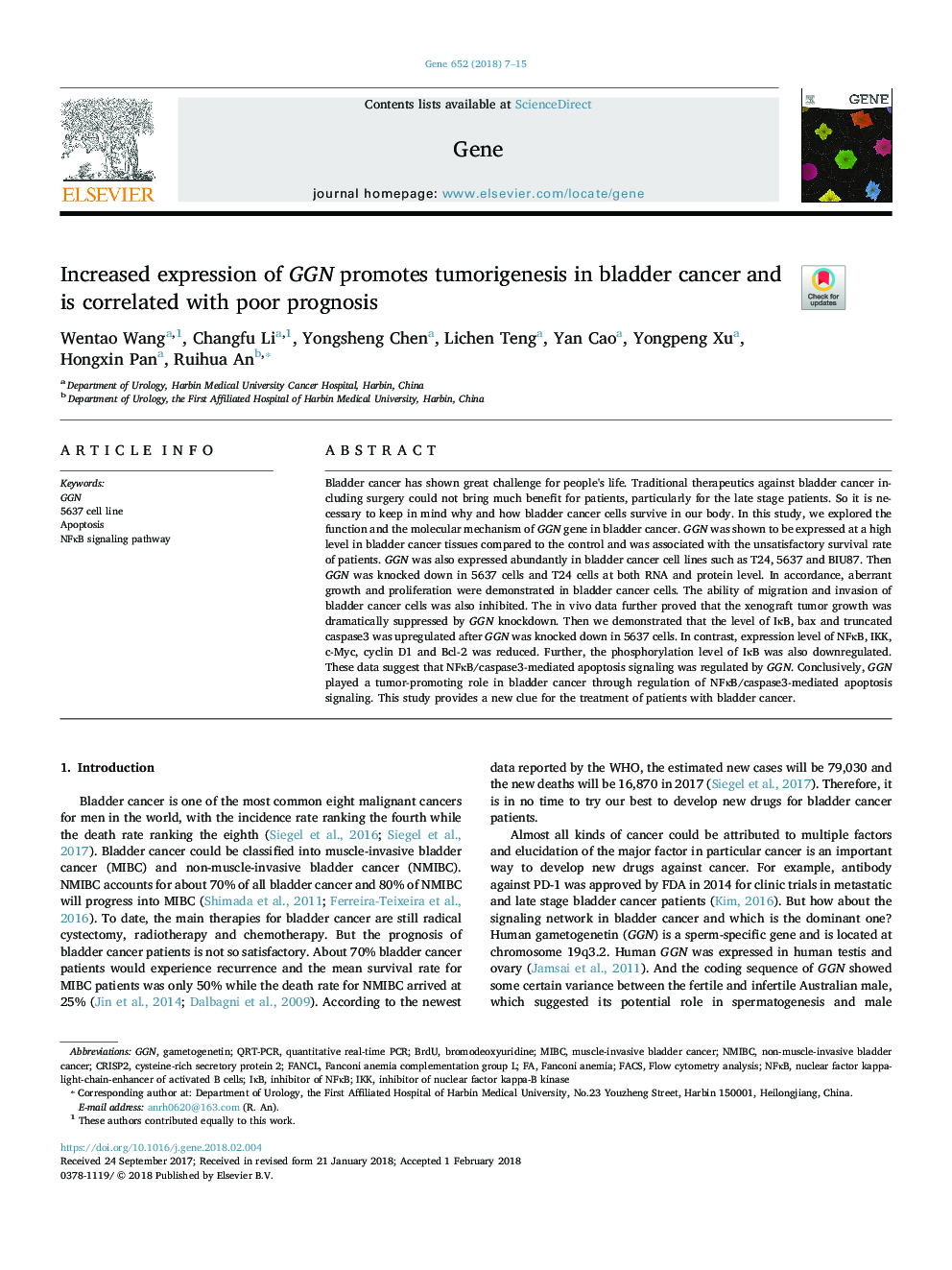| Article ID | Journal | Published Year | Pages | File Type |
|---|---|---|---|---|
| 8645389 | Gene | 2018 | 9 Pages |
Abstract
Bladder cancer has shown great challenge for people's life. Traditional therapeutics against bladder cancer including surgery could not bring much benefit for patients, particularly for the late stage patients. So it is necessary to keep in mind why and how bladder cancer cells survive in our body. In this study, we explored the function and the molecular mechanism of GGN gene in bladder cancer. GGN was shown to be expressed at a high level in bladder cancer tissues compared to the control and was associated with the unsatisfactory survival rate of patients. GGN was also expressed abundantly in bladder cancer cell lines such as T24, 5637 and BIU87. Then GGN was knocked down in 5637 cells and T24 cells at both RNA and protein level. In accordance, aberrant growth and proliferation were demonstrated in bladder cancer cells. The ability of migration and invasion of bladder cancer cells was also inhibited. The in vivo data further proved that the xenograft tumor growth was dramatically suppressed by GGN knockdown. Then we demonstrated that the level of IκB, bax and truncated caspase3 was upregulated after GGN was knocked down in 5637 cells. In contrast, expression level of NFκB, IKK, c-Myc, cyclin D1 and Bcl-2 was reduced. Further, the phosphorylation level of IκB was also downregulated. These data suggest that NFκB/caspase3-mediated apoptosis signaling was regulated by GGN. Conclusively, GGN played a tumor-promoting role in bladder cancer through regulation of NFκB/caspase3-mediated apoptosis signaling. This study provides a new clue for the treatment of patients with bladder cancer.
Keywords
FACSinhibitor of NFκBMIBCNMIBCGGNIKKIκBqRT-PCRNFκBBrdUbromodeoxyuridineFlow Cytometry AnalysisApoptosisMuscle-invasive bladder cancernon-muscle-invasive bladder cancernuclear factor kappa-light-chain-enhancer of activated B cellsinhibitor of nuclear factor kappa-B kinasequantitative real-time PCRFanconi anemia
Related Topics
Life Sciences
Biochemistry, Genetics and Molecular Biology
Genetics
Authors
Wentao Wang, Changfu Li, Yongsheng Chen, Lichen Teng, Yan Cao, Yongpeng Xu, Hongxin Pan, Ruihua An,
